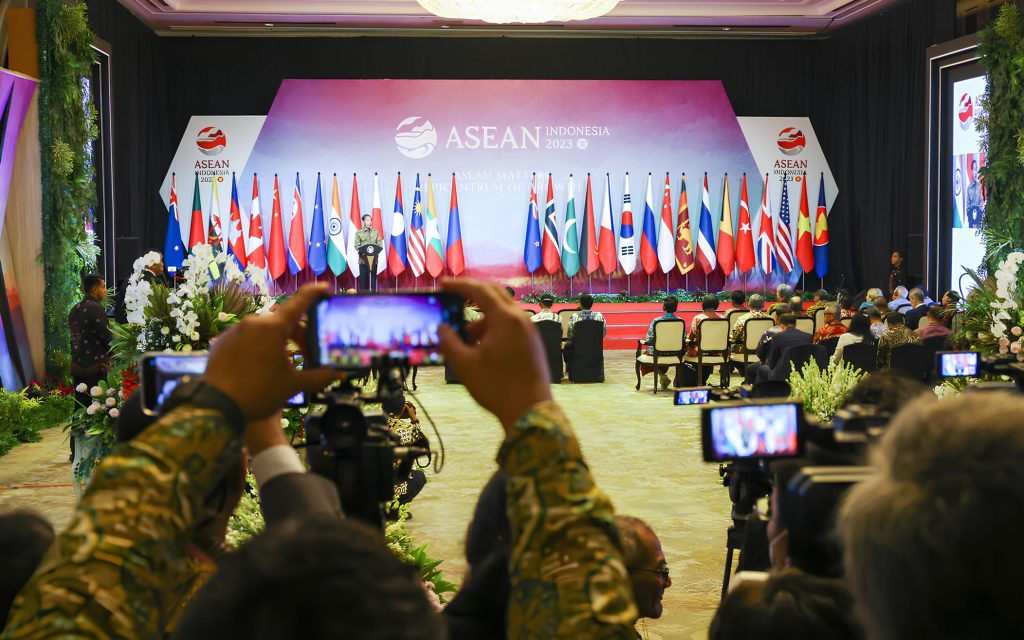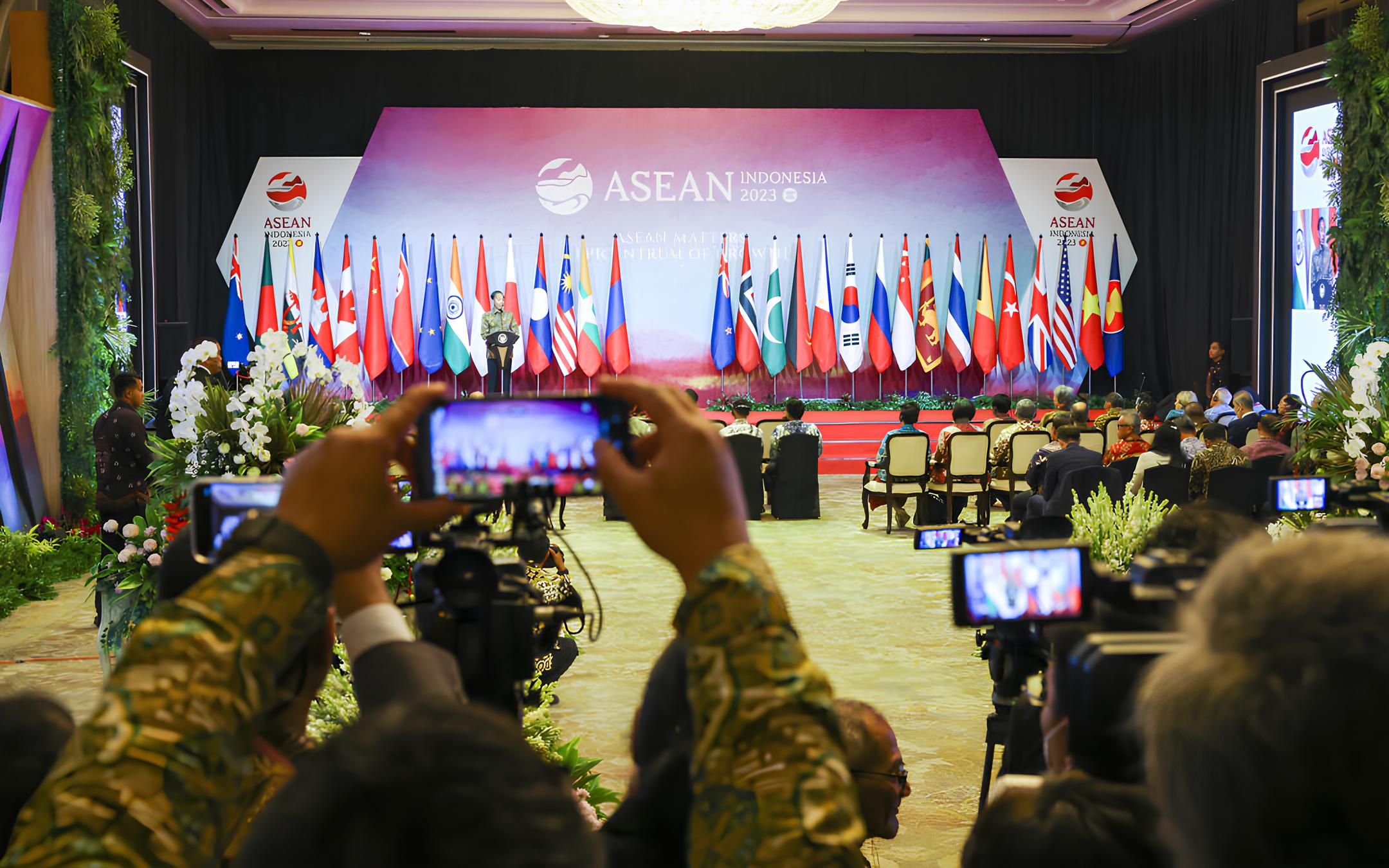
In the face of ongoing human rights violations in ASEAN, AICHR’s effectiveness is faltering. A strong roadmap for change is needed. Can AICHR gain the authority and legitimacy to address these issues?
MAY 02, 2024

Human rights violation still finds its way to exist in the region despite the existence of the ASEAN Commission on Human Rights organization and the declaration of the ASEAN Human Rights Declaration. It is expected that these attempts will be able to decrease human rights violations to occur in the region. Alas, it happened contrary to what was hoped to be. Therefore, to strengthen its legitimacy and actions in response to this issue, it is important for AICHR to revise the work plans of human rights organizations by implementing policies to practical solutions, adhere to the ASEAN Human Rights Declaration, and not to limit their own approaches. Additionally, ASEAN needs a legally binding statement to resolve human rights disputes in order to bolster AICHR’s position.
ASEAN Intergovernmental Commission on Human Rights (AICHR) has become ASEAN’s attempt in condemning human rights violations. Since their establishment in 2009, the organization functions as a promoter of human rights values and protecting human rights in ASEAN. One of their efforts is to accept letters from complainers via the ASEAN secretary and will be discussed at upcoming AICHR meetings. Through its delegate, the country being involved will handle the complaint, giving them the freedom to choose how to respond at their judgment.
ASEAN also ramped up their efforts by forming the Commission on the Promotion and Protection of the Rights of Women and Children (ACWC) and Declaration on VIolence against Women and Violence against Children in ASEAN (DEVAWC) to tackle deeper women and children issues in 2010. 3 years after the establishment of AICHR, ASEAN also declared the ASEAN Human Rights Declaration, which declares the commitment of ASEAN to strengthening regional efforts to promote and promote human rights. A wide spectrum of aspects in human rights such as civil, political, economic, social, and cultural rights, are written in the declaration.
However, the presence of the organization is not enough in solving this issue. The declaration itself is not adhered well and numerous violations were still made. During the drafting process, stakeholders disagreed with the minimum transparency and were not able to reach fundamental human rights standards. In addition, the weak AICHR’s approaches in solving human rights issues can be seen from their work plan in 2021-2025, which concludes how this organization aims for unreliable attempts to fight human rights violations. Based on the blueprint, they concentrate on policy assistance for ASEAN Sectoral Bodies, in which those policies go to nothing rather than meaningless sentences.
While the organization pursued coordination with associated institutions to promote human rights and build stronger public awareness, it failed to effectively engage with state members or conduct strong strategies in addressing the issue. In addition, they only focused on promotion and educating the public on the importance of human rights via workshops and other media. In addition, the organization itself has pursued numerous dialogues with related parties, yet it resulted in nothing. Another factor in why AICHR can’t do nothing is the famous “ASEAN way” policy in the region, where interference is not feasible for countries including organizations. These efforts are too weak and could not produce strong results or progress in facing huge violations of human rights values in ASEAN.
ASEAN’S inability to solve human rights issues has allowed numerous cases to occur, which happened in several member states. The protest in Thailand, which demands for democracy and questioning monarch system, resulted into repressions and torture, which ignited human rights violation. The demonstration escalated after a tragic death of a 15 years old activist. Moreover, other pro-democracy youths were tortured and even burned while being in custody by local authorities. Another similar case happened in Vietnam, where more than 150 activists experienced an interference in their free speech towards the government, as they pointed out their rejection towards Vietnam’s close relationship with China (anti-China protest). The violations have limited journalism activities and activists being arrested by the government. It was known that free-speech violation was easier for the authority to do during the COVID-19 lockdowns, where they took advantage by extending sentences for numerous activists and detentions.
Arguably the most outstanding human rights violation has been Myanmar’s scrutiny towards its own ethnic, which is the Rohingya ethnic. Since the genocide started in 2016, the government was able let more than 600,000 Rohingya people to refuge to other country. Moreover, it managed to kill 6700 Rohingya population and over 700 children under five years old only in 2017 alone. The country’s situation got even worse after the coup d’etat of military opposition in 2020, which destabilized the internal affairs of Myanmar and gave no room for the people to stand out their voice, as the free speech of Myanmar people was abolished.
The current government in power also pursued rebel actions towards its own people, where they managed to imprison hundreds of individuals and capture more than 140 journalists and weaken media spread. The junta soldiers also destroyed homes in the villages by burning houses and bombing the residence. It was known that the army exploded a village resulting in at least 80 deaths. The government also stopped food distribution which leaves no choice for the people than to escape from their own homes. The Myanmar crisis is a “complete package” of human rights violation, where it violates the rights of the Rohingya population to freely live and the rights of free speech of the Myanmar people as the military junta took over the country. With that being said, there has to be a major change in ASEAN human rights organization’s policy in facing such issues before it becomes even worse.
A strong solution in resolving human rights issues is to strengthen and revise AICHR’s provision in their own values, vision, and mission towards ASEAN’s human rights situation by rerouting its work plan, and apply concrete actions. AICHR must not limit their capability by just becoming a promoter of human rights adherence only. By still being close-minded and implementing interference policy, this could block AICHR in pursuing strong movements and actions in solving human rights issues. Moreover, ASEAN needs a binding declaration or legal institution which covers human rights issues settlement to strengthen AICHR’s position and having its legitimacy stronger than before to assist the region in pursuing assertive actions to condemn human rights violations.
A curated seletion of FA’s must-read stories.
Written By: SeungHawn Kim
Written By: RIZWAN RAFI TOGOO
Written By: MARCO MENDEZ
Written By: KRISHNA ACHNAF HERINDRA
Written By: BILLY AGWANDA
Written By: SURUTHI LENIN
Written By: BERK TUTTUP
Written By: ALEXANDER BERGH

Krishna Achnaf Herindra is a fourth year Indonesian undergraduate student studying International Relations at Tokyo International University. His interest revolves in the field studies of geopolitics and energy security. Alongside his studies, Krishna has been working on publications as part of his responsibility as the Head of International Relations Commission at Overseas Indonesian Students Association Alliance.
Written By: BATUHAN GUNES
Written By: KRISTIN HYNES
Written By: ERIC SONG
Written By: ALEXANDER BERGH
Written By: KATE-REID SMITH
Written By: JOSEF SCHOEFL
Written By: PATRIC MCFARLAND
Written By: FATIH CEYLAN
FA’s flagship evening newsletter guilding you through the most important world streis ofthe day. Delivered weekdays.
